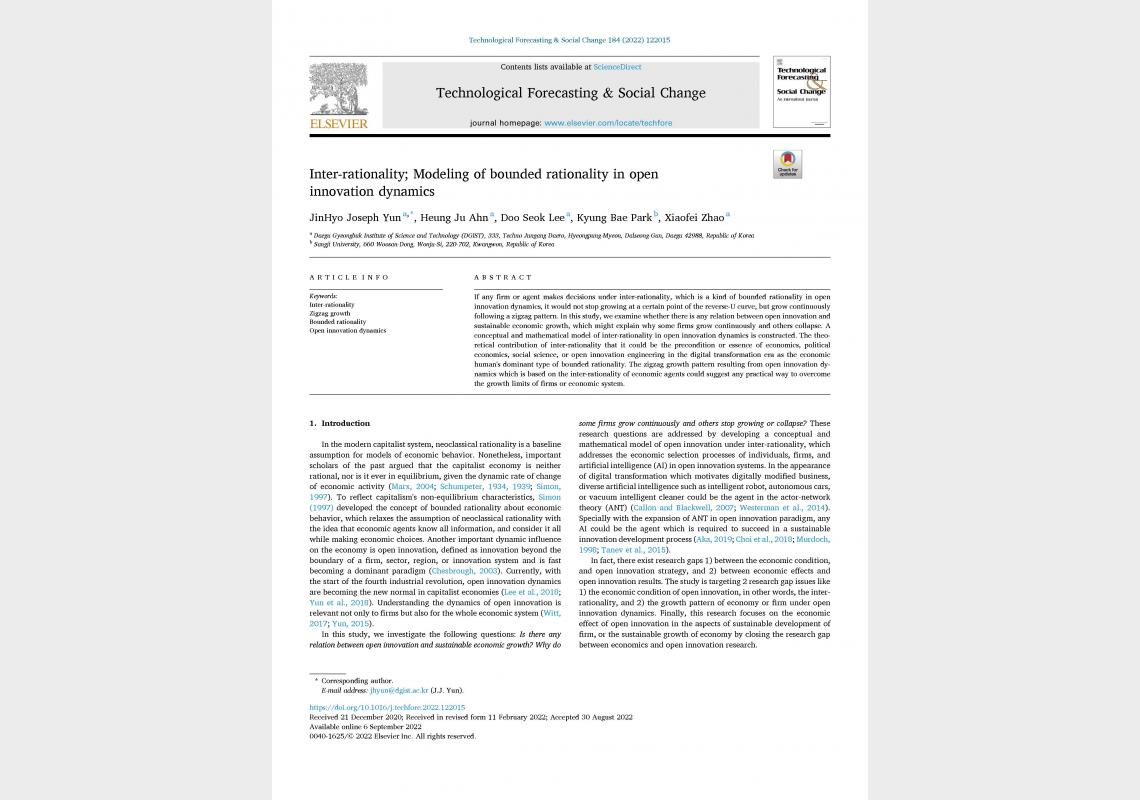□ Senior Researcher of the Division of Electronics & Information System of DGIST (President Kuk Yang) (also adjunct professor of Seoul National University Graduate School of Public Administration) Yoon Jin-hyo’s research team established the ‘inter-rationality’ model, which inherited the limited rationality model. It is expected to be able to present an economical and engineering alternative that can overcome the growth limits of the modern economic system.
□ The 'limited rationality' model explains the process of selecting realistically satisfactory alternatives rather than pursuing optimal decision-making as limited resources (time, information, etc.) that limits rationality in individual or corporate decision-making process. This is the decision-making model proposed by Herbert Simon, who received the Nobel Prize in Economics in 1978.
□ However, modern society is in an era of interaction-based 'open innovation' where ideas, knowledge, and technology move freely in both directions along with the development of social networking services (SNS). It may be somewhat inappropriate to apply the existing decision-making model of limited rationality in its current form to today’s society.
□ The research team led by Dr. Yoon Jin-hyo of the Division of Electronics & Information System of DGIST newly established the model into a relationship-based theory called 'inter-rationality,' which inherits the limited rationality model that they have studied for more than ten years, based on the economic foundation and business model of open innovation.
□ This model provides the reason a company, which makes decisions based on interaction rationality under an open innovation structure, does not stop growing at a specific point but continues to grow. In addition, it establishes a microeconomic theoretical foundation for corporate-level activities called open innovation. It is expected to have a profound impact on the academic development in the related field.
□ In particular, Professor Park Gyeong-bae of the Department of Business Administration at Sangji University, Professors Ahn Heung-ju and Lee Doo-seok of the School of Undergraduate Studies and Senior Researcher Cho Hyo-bi of the Division of Electronics & Information System at DGIST participated in this study to establish mathematical and systemic concepts and expanded the applicability of the model in various angles.
□ Senior Researcher Yoon Jin-hyo of the Division of Electronics & Information System at DGIST said, “The results of this study are expected to play a major role as a basic theory for the development of deep learning and big data industries, which are global core industries in the era of digital transformation,” adding, “I will do my best as a researcher so that Korea can create more world-class research outcomes in the post-catch-up era.”
□ This study is a result of the consistent support from DGIST, and it was published in 'Technological Forecasting and Social Change (TFSC),' one of the world's top three journals in the field of innovative economy, in September 2022.
e-mail : [email protected]



